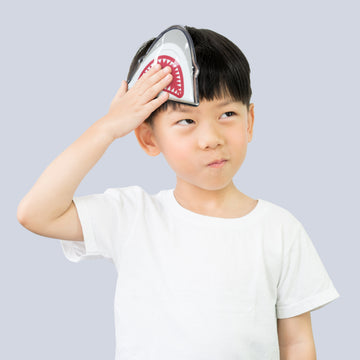Posted by Tia Patel | SEP-09-2020

Running for Mental Health
Stress Awareness Month has been held every April, since 1992 to increase public awareness about both the causes and cures for our modern stress epidemic. According to the Mental health Foundation 74% of UK adults have felt so stressed at some point over the last year they felt overwhelmed or unable to cope.
We’ve looked at the science behind running for a better mental health and some of the benefits so you can run your way to better mental health.
Benefits of Running
There is really good evidence that running can improve our mental health and protect us from various mental health conditions. Whenever you’re running for anxiety, your brain experiences an increase in electrical activity in key areas that are essential for processing emotions and helping consolidate memories from the short and the long term.
The hippocampus area of the brain is important for emotional processing, which is where dementia, cognitive impairment and depression occur. Brain scans in people who run show this area growing over time with the regeneration of new neurons increasing electrical activity with just 10 minutes of running in this part of the brain.
Further studies in younger people found increases in activity in the anterior cortex of the brain, a key area for problem solving and emotional resilience.
One of the key things running does is release a brain fertiliser called brain-derived neurotrophic factor (BDNF) which encourages the growth of new brain cells to reduce fatigue.
People who develop mental health conditions or become stressed have an increase in peripheral inflammation. Producing these inflammatory markers are a sign of stress within the body. These start to increase when the body is stressed and it often happens if we’re fighting a physical disease. When people are becoming unwell with mental health conditions or their mental health is an issue, these markers are increased as well. Running has been proven to reduce these peripheral inflammatory markers.
Positive changes also occur within the endocannabinoid system. This is a really important reward-processing area of the brain which is why people experience runners high!
These are some of the neuroscience perspectives on why running helps us, but it’s important to acknowledge there are other factors as well. Going outdoors and being in an open space is good for our mental health, combine this with exercise and we create a sense of achievement which makes us feel good about ourselves!
5 ways running helps your mind
-
Stress management - Running can help to control stress and boost the body's ability to deal with existing mental tension. Exercise increases concentrations of norepinephrine, a chemical that helps moderate the brain's response to stress.
-
The sunshine vitamin - Running outside on a sunny day helps your body produce vitamin D, a nutrient that lessens the chances of experiencing depressive symptoms.
-
A calmer state of mind - The chemicals released during and after running can help people experiencing anxiety feel calmer. Getting your body moving is a healthy way of coping with tough times whether that be pounding the pavements or running indoors on a treadmill.
-
Brainpower boost - Cardiovascular exercise can create new brain cells and improve overall brain performance. A tough run increases levels of a brain-derived protein in the body which can help with decision-making, higher thinking and learning. Running will also boost creativity for up to two hours afterwards. Rather than staring at the blank page waiting for an exceptional idea to fall from the sky, get those legs moving and refresh your body and brain at the same time.
-
Increased productivity - Feeling unmotivated? The solution might be just a short run away. Research shows that workers who take time for exercise on a regular basis are more productive and have more energy than peers who are less active. Experts in the Journal of Physiology believe that working out in the middle of the day could be more effective after you’ve had a meal, boosting your body’s circadian rhythms and preparing you for the second half of your working day.
What you could do for Stress Awareness Month?
- Talk about how stress effects you – lets reduce the stigma that is associated with stress by talking about it openly.
- Share how you cope with stressful situations – this can benefit others and it may help you to take your focus off your own issues.
- Be kind– everyone experiences stress and anxiety so lets make sure we treat others with love and empathy.
- Take care of yourself – practice self –care. Do something you enjoy, take a bath, call a friend and don’t forget to exercise and eat well!
#AskTwice Questions
If you think someone may be struggling with anxiety or mental health, here are 7 questions by Psychology Today to get the conversation started:
-
How have you been?
-
How's your stress level lately?
-
Have you been eating and sleeping?
-
Is there anything you want to talk about?
-
Would you be willing to talk to someone?
-
What can I do for you?
-
When is the best time to check in with you again?
Don’t be afraid to ask the same question twice. The act of asking again can help someone to open up for the first time.
To anyone experiencing mental health problems, just remember that you’re not alone. Here is a link (https://www.nhs.uk/conditions/stress-anxiety-depression/mental-health-helplines/) to some NHS mental health helplines.
#TeamGPD
















